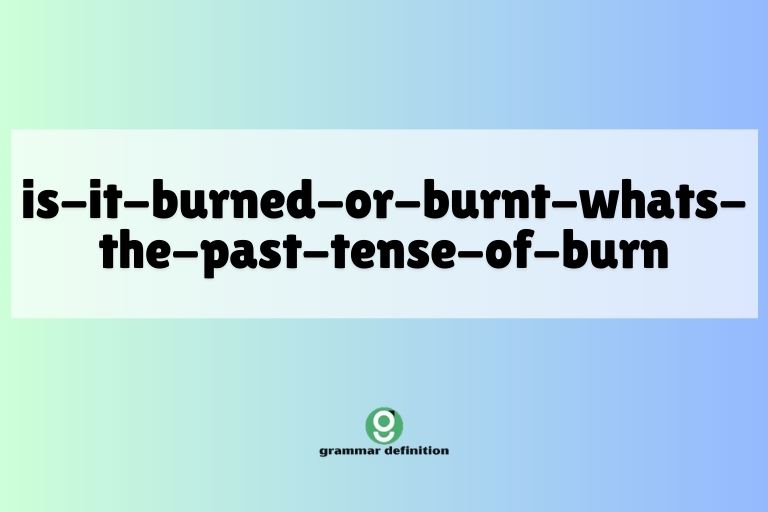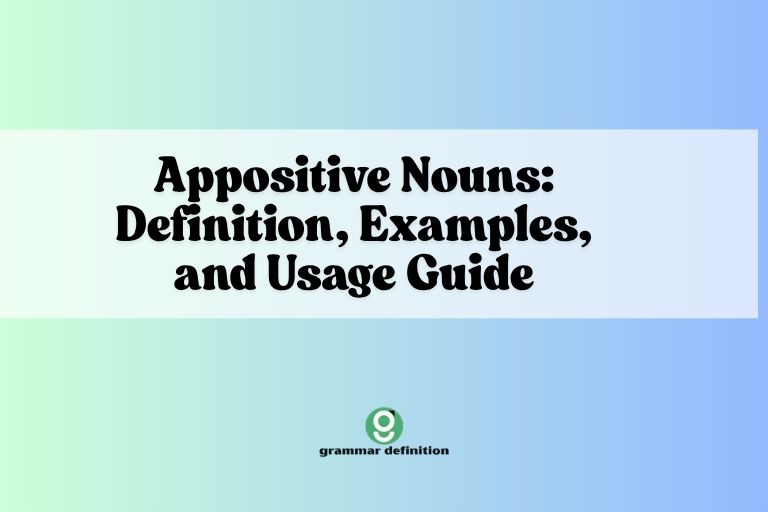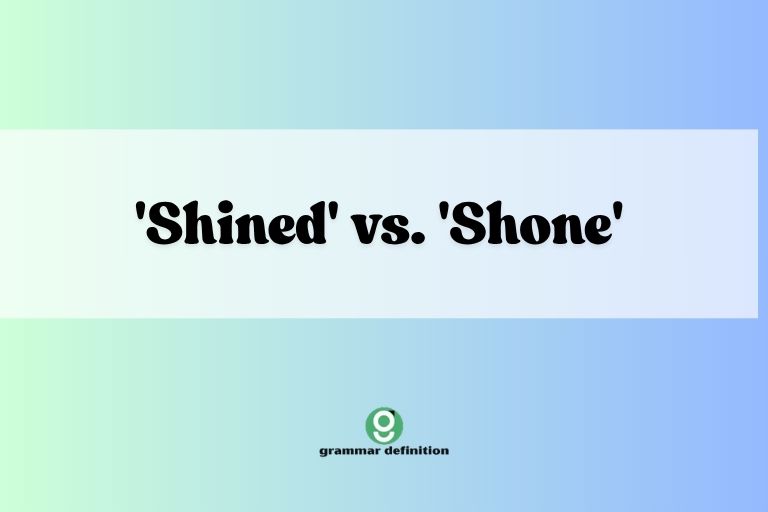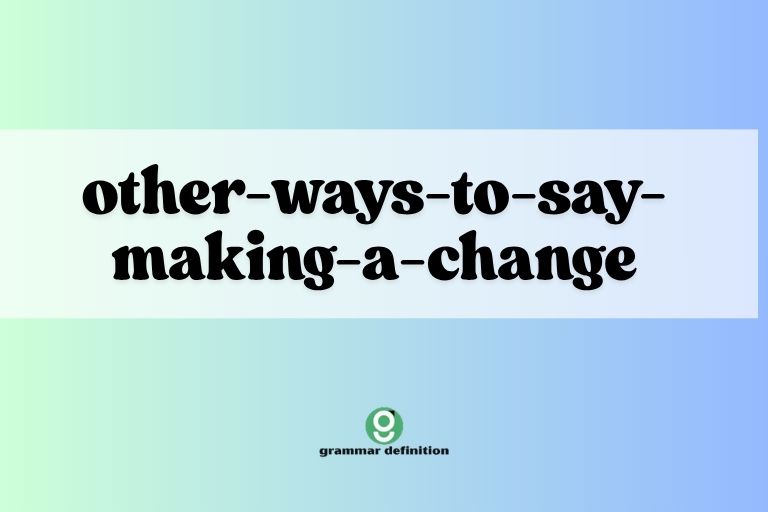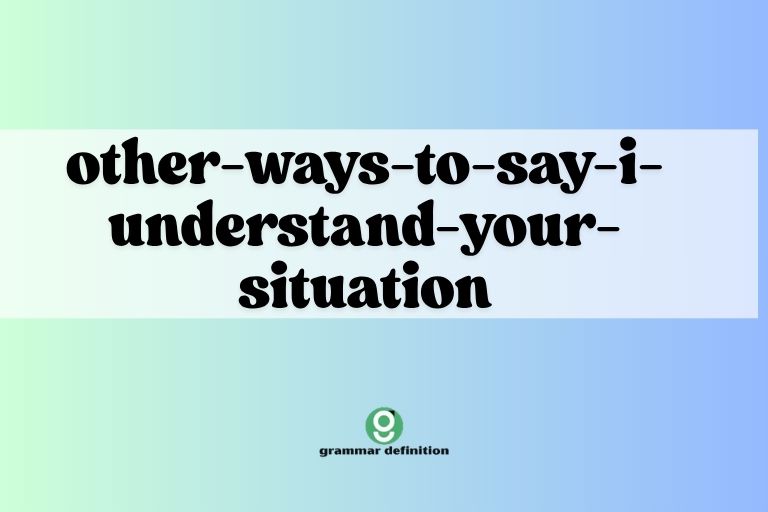Dreamed or Dreamt: Mastering the Past Tense of “Dream”
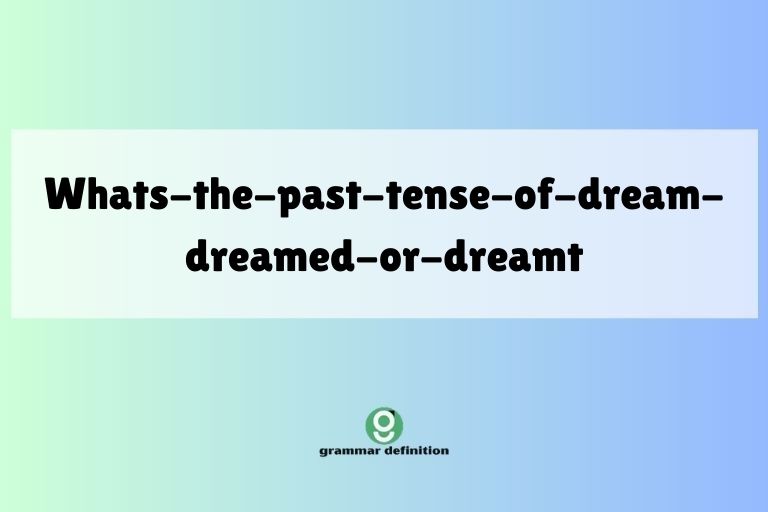
Understanding the nuances of verb tenses is crucial for effective communication in English. One common point of confusion arises with the verb “dream.” Is the past tense “dreamed” or “dreamt”?
Both forms are correct, but their usage varies depending on regional preferences and writing styles. This comprehensive guide will explore the intricacies of “dreamed” and “dreamt,” providing clear explanations, examples, and practice exercises to help you master their usage.
Whether you are an English language learner or a native speaker looking to refine your grammar skills, this article will equip you with the knowledge to confidently use the past tense of “dream.”
Table of Contents
- Introduction
- Definition of “Dream”
- Structural Breakdown
- Types or Categories
- Examples
- Usage Rules
- Common Mistakes
- Practice Exercises
- Advanced Topics
- FAQ
- Conclusion
Definition of “Dream”
The word “dream” can function as both a noun and a verb. As a noun, it refers to a series of thoughts, images, or sensations occurring in a person’s mind during sleep.
As a verb, “dream” means to experience such thoughts, images, or sensations while sleeping; it can also mean to contemplate the possibility of doing something or that something might be the case.
In the context of grammar, we are primarily concerned with “dream” as a verb and its past tense forms. The verb “dream” is considered an irregular verb because it has two possible past tense forms: “dreamed” and “dreamt.”
Classification: Irregular verb (with regular and irregular past tense forms)
Function: To describe the act of experiencing dreams during sleep or to imagine or contemplate something.
Contexts: Used in various contexts, including narratives, personal recounts, creative writing, and everyday conversation.
Structural Breakdown
The verb “dream” follows a somewhat unique pattern. While many irregular verbs have completely different forms in the past tense (e.g., “go” becomes “went”), “dream” offers two options, one of which resembles the regular past tense formation.
Base Form: dream
Simple Past: dreamed / dreamt
Past Participle: dreamed / dreamt
The addition of “-ed” to form “dreamed” makes it a regular past tense form, while “dreamt” is the irregular form. Both forms are acceptable, but their prevalence varies geographically, with “dreamt” being more common in British English and “dreamed” in American English.
Types or Categories
There aren’t distinct “types” of “dreamed” or “dreamt” in a grammatical sense. The choice between them is primarily a matter of regional preference and stylistic choice.
However, it’s helpful to consider the following categories:
Regional Variation
British English: “Dreamt” is generally preferred, though “dreamed” is also acceptable.
American English: “Dreamed” is the more common form, but “dreamt” is also understood and sometimes used, particularly in more literary or formal contexts.
Stylistic Considerations
Formal Writing: While both are acceptable, “dreamt” might lend a slightly more formal or archaic tone to writing.
Informal Speech: “Dreamed” is often favored in casual conversation, especially in American English.
Past Participle Usage
Both “dreamed” and “dreamt” can function as past participles, used in perfect tenses (e.g., “I have dreamed,” “I had dreamt”) and passive voice constructions (e.g., “It was dreamed of,” “It had been dreamt of”).
Examples
The following tables provide extensive examples of “dreamed” and “dreamt” in various contexts, illustrating their usage in simple past tense and as past participles.
Simple Past Tense Examples
This table shows examples of both “dreamed” and “dreamt” used in the simple past tense, demonstrating their application with different subjects and in various sentence structures.
| Sentence | Form Used |
|---|---|
| I dreamed of flying last night. | Dreamed |
| She dreamt she was a princess. | Dreamt |
| He dreamed about winning the lottery. | Dreamed |
| They dreamt of a better future. | Dreamt |
| We dreamed we were on vacation. | Dreamed |
| You dreamt of your childhood home. | Dreamt |
| The dog dreamed of chasing squirrels. | Dreamed |
| My mother dreamt of her late husband. | Dreamt |
| The child dreamed of Santa Claus. | Dreamed |
| The artist dreamt of creating a masterpiece. | Dreamt |
| I dreamed that I could breathe underwater. | Dreamed |
| She dreamt that she was giving a speech. | Dreamt |
| He dreamed that he was lost in a forest. | Dreamed |
| They dreamt that they were traveling the world. | Dreamt |
| We dreamed that we were singing on stage. | Dreamed |
| You dreamt that you were meeting your idol. | Dreamt |
| The cat dreamed of catching a mouse. | Dreamed |
| My father dreamt of his college days. | Dreamt |
| The student dreamed of passing the exam. | Dreamed |
| The writer dreamt of publishing a novel. | Dreamt |
| I dreamed of a world without war. | Dreamed |
| She dreamt of a life filled with happiness. | Dreamt |
| He dreamed of a successful career. | Dreamed |
| They dreamt of a peaceful retirement. | Dreamt |
Past Participle Examples (Perfect Tenses)
This table illustrates the use of “dreamed” and “dreamt” as past participles in perfect tenses, such as present perfect, past perfect, and future perfect, showcasing their versatility in different temporal contexts.
| Sentence | Form Used |
|---|---|
| I have dreamed of this moment for years. | Dreamed |
| She had dreamt of becoming a doctor since she was a child. | Dreamt |
| He has often dreamed of traveling to Europe. | Dreamed |
| They had dreamt about owning a house by the sea. | Dreamt |
| We have all dreamed of winning an award. | Dreamed |
| You had dreamt of this opportunity for a long time. | Dreamt |
| The dog has dreamed of chasing rabbits. | Dreamed |
| My mother had dreamt of seeing her grandchildren grow up. | Dreamt |
| The child has dreamed of visiting Disneyland. | Dreamed |
| The artist had dreamt of having his work displayed in a gallery. | Dreamt |
| I have often dreamed of a simpler life. | Dreamed |
| She had dreamt of a world where everyone is equal. | Dreamt |
| He has frequently dreamed of finding buried treasure. | Dreamed |
| They had dreamt of building their own home. | Dreamt |
| We have all dreamed of achieving our goals. | Dreamed |
| You had dreamt of this success for many years before it arrived. | Dreamt |
| The cat has dreamed of endless fields of catnip. | Dreamed |
| My father had dreamt of retiring early and traveling the world. | Dreamt |
| The student has dreamed of graduating with honors. | Dreamed |
| The writer had dreamt of seeing his book on the bestseller list. | Dreamt |
Past Participle Examples (Passive Voice)
This table provides examples of “dreamed” and “dreamt” used as past participles in passive voice constructions. It demonstrates how both forms can be used when the subject of the sentence receives the action.
| Sentence | Form Used |
|---|---|
| It was dreamed that peace would prevail. | Dreamed |
| A solution had been dreamt up by the team. | Dreamt |
| The impossible was dreamed of by many. | Dreamed |
| A better world was dreamt about by the activists. | Dreamt |
| The future was dreamed to be bright. | Dreamed |
| Great things were dreamt to be possible. | Dreamt |
| The new invention was dreamed of for many years. | Dreamed |
| A unified nation was dreamt about by the founders. | Dreamt |
| A cure for the disease was dreamed to be within reach. | Dreamed |
| A sustainable future was dreamt about by the scientists. | Dreamt |
| A world without poverty was dreamed of by humanitarians. | Dreamed |
| A colony on Mars was dreamt about by the space explorers. | Dreamt |
| A self-driving car was dreamed of by engineers. | Dreamed |
| A universal language was dreamt about by linguists. | Dreamt |
| A society of peace and harmony was dreamed of by philosophers. | Dreamed |
| A world powered by renewable energy was dreamt about by environmentalists. | Dreamt |
| A cure for aging was dreamed of by researchers. | Dreamed |
| An end to world hunger was dreamt about by philanthropists. | Dreamt |
| A society free of crime was dreamed of by law enforcement. | Dreamed |
| A world where everyone has access to education was dreamed about by educators. | Dreamt |
Usage Rules
While both “dreamed” and “dreamt” are grammatically correct, understanding the nuances of their usage can help you choose the most appropriate form for your writing or speech.
Regional Preference
As mentioned earlier, “dreamed” is more common in American English, while “dreamt” is more prevalent in British English. This is a general guideline, and both forms are understood in both regions.
Consistency
Regardless of which form you choose, it’s important to maintain consistency within a single piece of writing. Avoid switching between “dreamed” and “dreamt” unless there is a specific stylistic reason to do so.
Formal vs. Informal
While both forms are acceptable in formal writing, “dreamt” might be perceived as slightly more literary or archaic. In informal speech, “dreamed” is often preferred, especially in American English.
Auxiliary Verbs
When using “dreamed” or “dreamt” with auxiliary verbs (e.g., “have,” “had,” “will have”), remember that they function as past participles. The auxiliary verb determines the tense, and the past participle form remains the same.
Common Mistakes
Even with a clear understanding of the rules, some common mistakes can occur when using the past tense of “dream.”
Incorrect Use of Present Tense
Incorrect: I dreamt last night about flying.
Correct: I dreamed last night about flying. / I dreamt last night about flying.
Explanation: Using the present tense “dream” instead of the past tense is a common error. Always use “dreamed” or “dreamt” to indicate a past action or state.
Mixing Forms Inconsistently
Incorrect: I dreamed of you, and then I dreamt about a dragon.
Correct: I dreamed of you, and then I dreamed about a dragon. / I dreamt of you, and then I dreamt about a dragon.
Explanation: Inconsistency in using “dreamed” and “dreamt” within the same context can be confusing. Choose one form and stick to it unless there’s a specific stylistic reason to switch.
Misunderstanding Past Participle Usage
Incorrect: I have dreamt it before I saw it happen.
Correct: I had dreamt it before I saw it happen.
Explanation: The past perfect tense (“had dreamt”) is needed to indicate an action completed before another action in the past. “Have dreamt” indicates an action completed at some point before now (present perfect), which doesn’t fit the sentence’s meaning.
Practice Exercises
Test your understanding of “dreamed” and “dreamt” with these practice exercises. Choose the correct form of the verb in each sentence.
Exercise 1: Choose the Correct Form
Select either “dreamed” or “dreamt” to fill in the blanks in the following sentences.
| Question | Answer |
|---|---|
| 1. Last night, I _________ I was swimming in the ocean. | dreamed / dreamt |
| 2. She had _________ of this moment for years. | dreamed / dreamt |
| 3. He _________ he was a famous musician. | dreamed / dreamt |
| 4. They have _________ of traveling the world. | dreamed / dreamt |
| 5. We _________ we were lost in the woods. | dreamed / dreamt |
| 6. You _________ you were flying. | dreamed / dreamt |
| 7. I have never _________ such a vivid dream before. | dreamed / dreamt |
| 8. She _________ of a world filled with peace. | dreamed / dreamt |
| 9. He had _________ of success, but it never came. | dreamed / dreamt |
| 10. They _________ they were dancing in the rain. | dreamed / dreamt |
Exercise 2: Correct the Mistakes
Identify and correct the errors in the following sentences. If the sentence is correct, write “Correct.”
| Question | Answer |
|---|---|
| 1. I dream of you last night. | I dreamed of you last night. / I dreamt of you last night. |
| 2. She have dreamt of becoming a doctor. | She has dreamed of becoming a doctor. / She has dreamt of becoming a doctor. |
| 3. He dreamed, and then he dreamt again. | He dreamed, and then he dreamed again. / He dreamt, and then he dreamt again. |
| 4. They has dreamed of winning the lottery. | They have dreamed of winning the lottery. / They have dreamt of winning the lottery. |
| 5. We dreamt this before. | We have dreamed this before. / We have dreamt this before. |
| 6. You had dream of this day. | You had dreamed of this day. / You had dreamt of this day. |
| 7. I have dream about you. | I have dreamed about you. / I have dreamt about you. |
| 8. She dreamt and then she dreamed again. | Correct |
| 9. He dream about the future all the time. | He dreams about the future all the time. (Present Tense) / He dreamed about the future all the time. (Past Tense) / He dreamt about the future all the time. (Past Tense) |
| 10. They had dreamed it before I did. | Correct |
Advanced Topics
For advanced learners, exploring the etymology and historical usage of “dreamed” and “dreamt” can provide a deeper understanding of their evolution.
Etymology
The verb “dream” comes from the Old English word “drēam,” which meant “joy, mirth, noise, music.” The sense of “visions during sleep” developed later. The “-ed” ending is the standard English way to create a past tense verb, while the “-t” ending is a holdover from older Germanic verb conjugations.
Historical Usage
Historically, “dreamt” was the more common form in English. However, with the standardization of English and the rise of American English, “dreamed” has gained prominence.
A review of historical literature reveals a gradual shift in preference over time.
Cross-linguistic Comparisons
Comparing the past tense formation of “dream” with similar verbs in other languages can offer insights into the patterns of irregular verb conjugations. For example, in German, the verb “träumen” (to dream) has a regular past tense form, “träumte,” similar to “dreamed.”
FAQ
Here are some frequently asked questions about the past tense of “dream.”
Q1: Is “dreamed” or “dreamt” more correct?
Both “dreamed” and “dreamt” are grammatically correct. The choice between them often depends on regional preference and personal style.
“Dreamed” is more common in American English, while “dreamt” is more prevalent in British English.
Q2: Can I use “dreamt” in American English?
Yes, you can use “dreamt” in American English. While “dreamed” is more common, “dreamt” is still understood and sometimes used, particularly in more formal or literary contexts.
However, it’s important to be consistent with your choice within a single piece of writing.
Q3: Which form should I use in formal writing?
Both forms are acceptable in formal writing. However, “dreamt” might lend a slightly more formal or archaic tone.
If you are unsure, “dreamed” is a safe choice, especially if you are writing for an American audience.
Q4: Is there a difference in meaning between “dreamed” and “dreamt”?
No, there is no difference in meaning between “dreamed” and “dreamt.” They are simply different forms of the past tense and past participle of the verb “dream.”
Q5: How do I remember which form to use?
If you are writing for an American audience, “dreamed” is generally the safer and more common choice. If you prefer “dreamt” or are writing for a British audience, that is also acceptable.
The key is to be consistent. One helpful way to remember is to associate “dreamed” with the regular past tense formation (adding “-ed”) and “dreamt” with the irregular form.
Q6: Can I use “dreamt” as an adjective?
While uncommon, “dreamt” can occasionally be used as an adjective in certain poetic or literary contexts, although this usage is rare and often considered archaic. For example, “a land dreamt of long ago.”
Q7: What about other verbs that have both -ed and -t endings? Do the same rules apply?
Yes, similar rules apply to other verbs that have both -ed and -t endings, such as “leapt/leaped,” “burnt/burned,” “spilt/spilled,” and “knelt/kneeled.” The -ed forms are generally more common in American English, while the -t forms are more prevalent in British English. Consistency is key, and both forms are typically considered grammatically correct.
Q8: Are there any specific situations where one form is definitively preferred over the other?
While preference largely depends on region and style, certain idiomatic expressions might lean towards one form. However, there are no definitive rules that mandate one form over the other in specific situations.
Context and audience should guide your choice.
Conclusion
Mastering the past tense of “dream” involves understanding the nuances of “dreamed” and “dreamt.” While both forms are correct, their usage is influenced by regional preferences and stylistic considerations. “Dreamed” is more common in American English, while “dreamt” is more prevalent in British English.
Consistency is key, and both forms are understood in both regions. By understanding these guidelines and practicing with examples, you can confidently use the past tense of “dream” in your writing and speech.
Remember to consider your audience and maintain consistency throughout your work.
Ultimately, the choice between “dreamed” and “dreamt” is a matter of personal preference and stylistic choice. By understanding the nuances of their usage, you can make informed decisions and communicate effectively in any context.
Keep practicing, and you’ll soon find yourself navigating the complexities of English grammar with ease.

